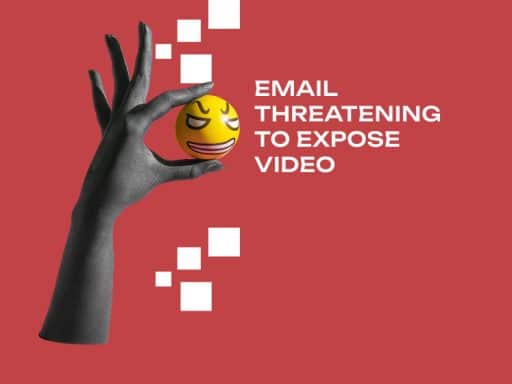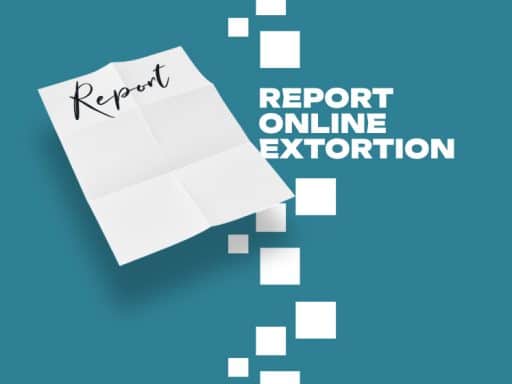OMG! Someone posted my nudes. What should I do? First, take a deep breath. It’s completely natural to feel overwhelmed, ashamed, or scared right now. While your first instinct might be to hide, taking immediate action is essential.
This might have happened because an ex-partner leaked your content in revenge, a hacker released stolen data, or you were catfished by a fake profile. Regardless of the cause, you have resources and options to help you recover from this exposure.
Review Your Exposure
If you’re under serious online abuse, resist the urge to delete messages or comments. You’ll need proof to report the abuse to the platform, the police, or any third-party investigators you work with. There are many ways your intimate content might have ended up online. Maybe you trusted a partner who shared the nude photos, or perhaps you were tricked by a cyber scammer.
- Exposure in Cases of Sextortion: If you were catfished and then enticed into sending intimate photos to an account that later threatened to expose you on social platforms, messaging apps, or email you have become one of the thousands of victims of sextortion. If this happens, let you contact know that you’ve been hacked and let them know that they should not open any suspicious content sent to them. Ask them also not to engage with or share the content further. You might be surprised by how sympathetic your real connections are, or that they may have their own experience with something similar.
- Exposure In Cases of Revenge Porn: Revenge Porn is not sextortion. In these cases an ex-partner releases explicit content you may have shared with them while together as a form of punishment for the relationship ending. If this is what is happening to you, gather all the evidence you can. Look for messages, screenshots, or any proof that shows that you ex threatened to release or did post the content. Non-consensual distribution of intimate content is a crime. This means that if you can prove the identity of your leaker, your local law enforcement can help punish the criminal. If you suspect your ex partner of posting the footage, but are having trouble proving this, please contact our helpline for additional assistance in identifying who leaked the content.
For Resources And Tools On How To Get your Nudes Off Sites Review The Article Below.
“Getting Your Nudes Off the Internet: A Comprehensive Guide”
Collect Evidence
Whether your nudes were leaked in a case of sextortion or revenge porn, gathering proof is a critical step. At Digital Forensics, we find that most victims of a leak can find this step challenging, so please reference this list of essential evidence if your nudes have been posted.
Essential Evidence to Collect:
- Information showing profiles or accounts you shared the content with. (Note: You don’t need to share the actual photos of videos.)
- Messages or communications that include threats to leak your nudes.
- Information on websites of platforms where the content was leaked or posted.
Working with Law Enforcement
While working with police can sometimes be challenging due to jurisdictional issues or limited resources, reporting the crime is still essential. Even if delays occur, your report helps hold perpetrators accountable.
Other Services that Help With Exposure
Depending on your current situation and the age in which your nude images were taken, there are non-profits and other government services that work with individuals who have suffered the non-consensual sharing of an image of video.
- Stop NCII (Stop Non-Consensual Image Sharing): This service helps request the removal of intimate content from websites and platforms. They also offer specialized resources for minors, including legal support and privacy guidance.(1)
- Digital Millennium Copyright Act (DMCA): If you own the rights to your images, you can file a DMCA takedown notice. This legal document requires websites to delete your content immediately or face legal consequences.(2)

Cyber Security Firms
Cybersecurity firms can assist in identifying how your content was leaked and by whom. Look for companies specializing in Digital Forensic Investigations, as they specialize in tracking the sources of leaks, removing unwanted content, and help prevent future exposure. These firms can also long-term solutions to protect your privacy.
Don’t Let Shame Cause You Harm
Do not be too hard on yourself. You trusted someone, and they broke that trust, putting you in a difficult situation. The people who leaked your content should feel ashamed, not you.
Talking to someone you trust can be very helpful during this difficult time. Rely on your loved ones for support, even if it might be difficult, and think about getting professional help.
There are many support systems for victims, and people who want to help you, like the team at Digital Forensics. As you go through this, know that we are here to support you and will be pleased to give you the resources and help you need to recover.
How Digital Forensics Corp. Helps Victims of Nude Leaks
Digital Forensics Corp understands how emotionally and mentally distressing it can be to have your intimate content exposed. Our services provide a comprehensive approach to address your specific situation.
The first step in pursuing legal action is gathering concrete proof of who posted your content. Whether you are dealing with sextortion or revenge porn, we offer a variety of services tailored to your specific needs. Our process starts with our forensic analysts doing a detailed phone survey to gather information about the incident. We also offer services to help you get your content removed from the internet.
If you’re facing threats of sextortion, we provide a Sextortion Helpline to guide you through the next steps and ensure your safety and privacy are protected.
SOURCES:
- Resources of Victims of Revenge Porn: https://stopncii.org/
- Information on DMCA: https://www.dcma.mil/About-Us/
DISCLAIMER: THIS POST IS FOR INFORMATIONAL PURPOSES ONLY AND IS NOT TO BE CONSIDERED LEGAL ADVICE ON ANY SUBJECT MATTER. DIGITAL FORENSICS CORP. IS NOT A LAWFIRM AND DOES NOT PROVIDE LEGAL ADVICE OR SERVICES. By viewing posts, the reader understands there is no attorney-client relationship, the post should not be used as a substitute for legal advice from a licensed professional attorney, and readers are urged to consult their own legal counsel on any specific legal questions concerning a specific situation.






